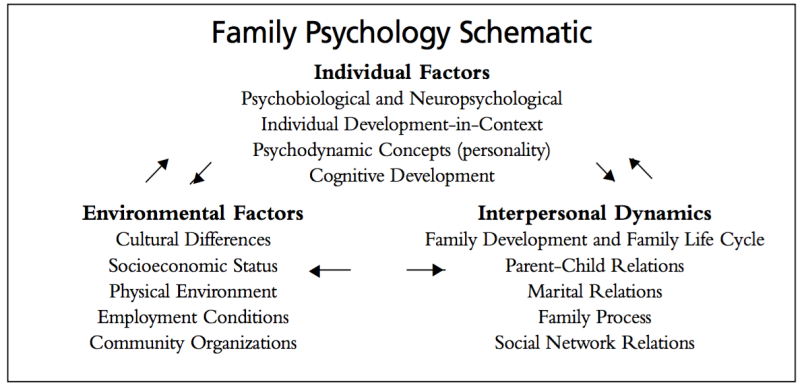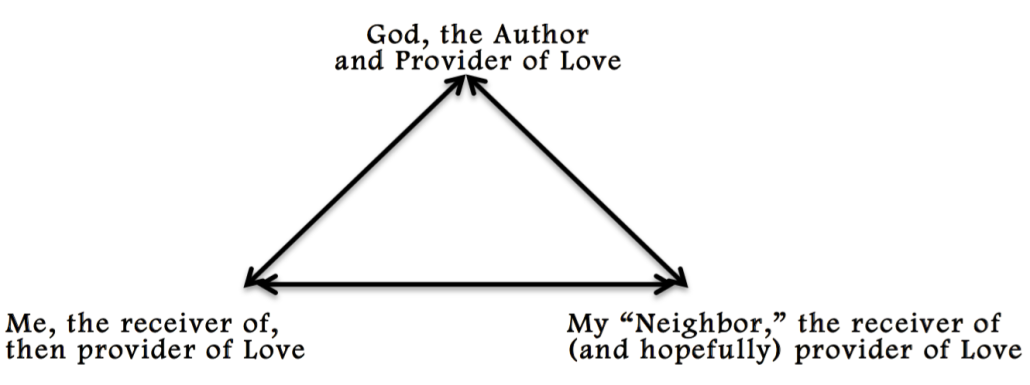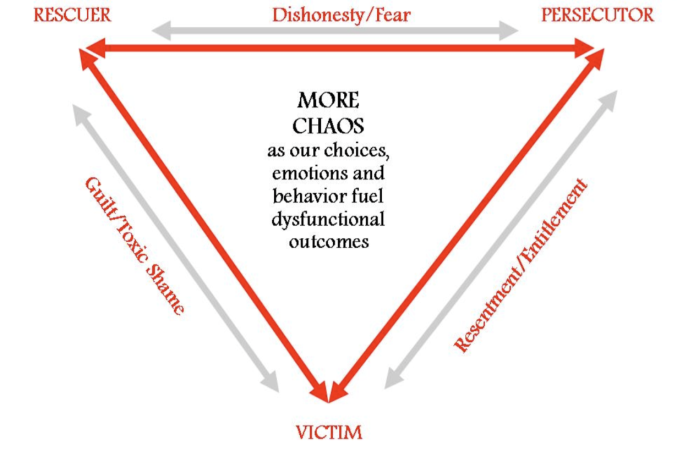Thanks for reading the Introductory post about Choosing Change and Choosing Change #1.
So as a Psychotherapist, but more importantly, as a human being who cares about others, I'd like for you to consider the following question: What's my (Dr. McGill's) reasonable contribution to your change, healing and growth process?
Embedded in this question are other questions: What's your contribution to your own change, healing and growth process? How will you be responsible for your own change, healing and growth? What does the road toward healing look like? What will your change, healing and growth process look like on a daily basis? If you're in a relationship or married, what's your partner's "reasonable contribution" to your change, healing and growth process? What would their reasonable contribution to you look like? When you feel you've made the change(s) you've envisioned, what would your life and relationships look like?
These are some tough questions that I'd like for you to reflect on as you consider your change, healing and growth in this season, and in subsequent seasons of your life. As a Psychotherapist (who has the training of a Clinical Psychologist), I do bring some unique skills and abilities to the table that you should expect to receive from me the moment you enter my office, and we'll elaborate about those skills and my responsibilities in a few of the points below.
However, for now, in this post (Part 1 of 2), I'd like for you to consider your own role, responsibility, actions and duty to your own change process and eventually (in Part 2 of 2), the reasonable contribution of others to your change process. When engaged in, its my hope that you'll position yourself to feel better, experience productivity and enhanced skill(s) for self-efficacy as you integrate some of the "curative" change agents which are discussed below.
As mentioned before in the previous posts, take what you could use and leave the rest, however, I think most of the "seeds" we'll discuss below are crucial change agents that will yield some form of fruitfulness into your life. But first, back to the questions above; What's everyone's role in your change, healing and growth process?
1. Seed #1: Yes, I'm a Therapist, but so are you: We'll talk about my clinical contributions below, but for now, I'd like for you to know that we all share the capacity to be Therapeutic. Our English word Therapy comes from the Greek word Therapeia. In the Bible, another English word is used when we see the word Therapeia (when translated means "Heal"). As I've said to others, the Therapon (or Therapist, that's you and me) provides the Therapeia (the Therapeutic and safe experience) which tends to result in a Therapeuo (or Therapeutic) outcome.
What makes Therapeia such a powerful change agent are the therapeutic behaviors associated with the word: Care, Attention, Help, Service, Minstry to Oneself and Ministry to Others. All are incorporated in the meaning of this word and could be very useful to anyone's change and growth process when practiced consistently.
These characteristics (or "seeds" as I like to call them) are only a few of the first change agents which when included in the crucible of your life will produce noticeable, fruitful and edifying changes for yourself. It'll be your responsibility to identify then work to provide to yourself the other change agents that will help you as you travel "from the Path of Unhealed Wounding" in your life. In my life, I've discovered that Humility, Attentiveness, Depth, Empathy, Knowledge, Grace, Nurturing and Perseverance are a few of the characteristics that have helped and edified me on my path from Unhealed Wounding. Not meaning to insult nor shame you, but what character development could help you to achieve real and meaningful change in your own life? Keep in mind and as we'll see, you don't have to travel on this path from unhealed wounding alone!
As a Therapist, I've also been positively impacted by Psychologist Carl Rodgers, who stated in order for people to experience real change then other therapeutic behaviors such as Genuineness, Vulnerability, Unconditional Positive Regard and the accurate display of Empathy are vital, helpful and necessary.
So I have a question (or two) for you: If you're struggling with an issue in your life, do you think that the appropriate display of Care, Attention, Help, Service, Genuineness, Unconditional Positive Regard and Empathy could be helpful to you in your process? What does the practical application and display of these words look like and how could they be useful to your own healing process, if you develop them for yourself or if they're developed and delivered to you by your spouse or partner? If these therapeutic qualities are missing in your encounters, then know that when something is missing, then something is missing, and that's going to impact the outcome or "flavor" of the soup that we'd like to enjoy (I told you I'd be switching between the Change metaphors: Crucible, Garden and Soup).
I encourage you to think about what could be missing thats impeding your ability to experience therapeutic outcomes in your life, then reflect upon what's the best way to develop then practically incorporate these necessary ingredients into your life for your own personal benefit.
In talking with a person the other day, I asked him "What ingredients or values, if practiced consistently, could help you to neutralize the entitlement behavior that you're displaying toward your wife?" He responded with Gratitude, Love, Respect for her, Mindfulness regarding his own actions, and Grace. He realized he had the capacity to be a Therapist to himself (by cultivating these values in his own life) and to be Therapeutic toward her, by developing then delivering these behaviors. We'll talk more about these ingredients below, and in the next few posts on this subject.
2. Seed #2: But quickly, my (Dr.McGill's) role: I'm fortunate to have been practicing as a Psychotherapist for over 20 years, and with the addition of my Doctorate in Clinical Psychology with an emphasis in Family Psychology (from Azusa Pacific University in 2003), know that when I answer your initial phone call or when you walk through my door for the first time, I'm thinking about you and the situation you present to me with the components of the Family Psychology schematic in mind (see below).
This schematic simply means that the items listed in the Individual, Interpersonal and Environmental areas need assessment and treatment, as we all may experience some type of hurt, pain or problem in one or more areas, and our lives and relationships could be negatively impacted because of those problems. In the same vein, each of the areas could be positively impacted with the application of the change agents (i.e., clinical treatment and equally, those therapeutic factors and therapeutic processes we just read about in Seed #1).

You may not need clinical treatment in all of the above mentioned Individual, Interpersonal or Environmental areas, but it helps to know that all of these bases are being considered and addressed because remember, if something vital about you is missing in the assessment and treatment area, then something just as vital will be missing in your treatment outcome!
I'm honored that the training and skills that I delight in bringing to the crucible of change (which I sometimes call psychotherapy) were acknowledged in 2010 when APU's School of Behavioral and Applied Sciences inducted me into the Azusa Pacific University Academic Hall of Honor. I'm also honored that each day, I get to deliver the same focus, rigor and commitment that helped me to obtain this award to you, as its important to me to provide the best that I could deliver in my endeavor to assist you to reach your personal and relationship goals. I enjoy being on the Path from Unhealed Wounding, moving toward the Path of Wounded Healing.
So when you arrive for your first (and subsequent) session(s), believe it or not, in addition to listening to you I'm also thinking to myself are you in crisis, what legal and ethical matters need to be addressed, what behaviors am I assessing that need diagnosis and treatment and finally, what goals, interventions and treatment areas will we need to collaborate on that need Therapeuo (a Therapeutic outcome).
Finally, I'm also thinking about and observing what skills, strengths, values, abilities and needs do you bring with you into the crucible, and I'm also listening for and discerning what skills, strengths, values, abilities and needs that you're seeking to obtain, develop and grow, because they could be useful to you in this particular "micro-season"of your life (the next 3 - 4 months).
Based on that, its my duty as a Psychotherapist to provide any "sustenance" that you may temporarily need from me (metaphorically portrayed in the photo of the fruit and vegetables above) when you're in crisis and you're in immediate need of some form of psychological "rejuvenation."
However, as you regain (and/or maintain) your strength, its my duty to help you to consider what seeds or "characteristics" you'd like to grow in the garden of your heart and life, as they'll prove to be nurturing, edifying and empowering to you and your relationships as you walk along your path from Unhealed Wounding. I call this part of our work "taking a trip to the seed store."

When we get to this point (or if you're engaging in this activity independent of me), I'll accompany you up and down the aisles in this seed store, where you'll identify characteristics (i.e., Love, Acceptance, Awareness, Respect and Empathy), needs (i.e., Faithfulness, Reliability, Trustworthiness and Understanding), values (i.e., Gentleness, Kindness, Devotion, Reasonableness) as well as behaviors (i.e., Punctuality, Boundaries, Recreation and Sensuality) that you get to choose that you'd like to develop in your life, solo, or in collaboration with your partner, spouse or family.
Once you've determined whats important to you and what you've decided to grow, its time to don your hat, roll up your sleeves and continue another phase of work in your garden! Remember, with the Phytoremediation process, whatever you plant in the "soil of your mind" is what you'll eventually harvest that could be edifying and fruitful to you, so think intentionally and seriously about what characteristics you'll want to focus on developing and growing!
I'll be candid with you though; it's fun to think about all of the growth possibilities in the garden of your life, but boy is it difficult to break ground and open up, remain committed through your struggle(s) and above all, to patiently await for any form of edifying and fruit(full) behavior to mature that you'd like to harvest and enjoy! Perhaps that's why God gave us the experience of childbirth (of which as a male I was partially involved). When two seeds come together in the soil of the mother, it takes nine whole months before someone who's life-changing and very beautiful is delivered into our midst!
So whats our takeaway from this? Some of our change, healing and growth (or therapeutic outcomes) will be immediate and "supernatural," however and more likely, most of our change, healing and growth will take place over a longer period of time, if not over seasons of our lives. As you'll read in a subsequent post, I'll encourage you to grow a lot of the characteristic called "Patience," because you'll need a lot of it to sustain you on your journey!
So in conclusion about my role, I see myself as an Agitator (to purposefully stir things up in your mind; now hold your nose...), Fertilizer (to assist in and possibly accelerate the growth process), Helper (to select the appropriate tools, make suggestions about which seeds (values) could be helpful in your first few micro-seasons), then probably the most important part, a Reminder, regarding what's your responsibility to your own change process and just how much you could reasonably expect from others in your effort to facilitate personal change, healing and growth. Let's talk further about this.
3. Seed #3: So how much can I reasonably expect from others?
In answering this question I'd like to introduce you to a concept that I call "The Sixty-six and Thirty-three percent Solution." Its based on a Theological premise located in the Bible thats commonly known as "The Two Greatest Commandments." You could read the scripture by clicking here. I'm glad it was boiled down to "two commandments." Way to keep it simple. I figure if I can get these two right, then the rest might fall into place. But I digress.
The premise is simple: Loving Our God, but really knowing and experiencing the healthy attributes of Our Higher Power is 33% of the equation. I'd like to think we could all benefit from a benevolent Higher Power who is Loving, Kind, Gentle, Empowering, Wise and Comforting, among other powerful and therapeutic attributes and ingredients of change.
Developing greater awareness regarding the first 33% helps us to define, practice and benefit from the intentional and strategic integration of these attributes into our own lives, which by definition and application is to Love Ourselves in healthy and appropriate ways. I sometimes call this the "Middle or 1.5 Commandment," and with its application in our lives our percentage total now equals 66%.
Finally, developing awareness with the 66% of Loving our God and Loving Ourselves helps us to edify, equip, inform, become knowledgeable, enlightened and empowered to provide Love to Our Neighbors as Ourselves, again in healthy and appropriate ways. This is the final 33% part of our equation. Making progress (and you'll notice our percentage never equals 100% or "perfection") in these areas of our life is a great way to not only conceptualize empowering ourselves but it also helps us to identify positive but measured ways to love, give and be therapeutic with others. I call the figure below my "Cultivating Love via Character Growth 'Primer.'"

I can't think of a healthier and better self- and other care "formula" than this! If I maintain a conscious and continuous contact with my Higher Power, then I'll position myself to discover and experience wonderful characteristics and attributes of and from my God, which hopefully, I'll want to cultivate into my own life for my personal benefit (that's the loving yourself part).
This vibrant connection with my Higher Power helps, informs, empowers, guides and equips me to decide what a "reasonable response" to my neighbor looks like, then to pass along to that person(s) good things from the abundance of my personal growth but not to my detriment nor overextension. This is the crux of the 66% - 33% Solution. But there's more.
First, keep in mind that 66% and 33% may fluctuate a bit; sometimes the larger number will be more, and sometimes the smaller number will be less, depending on our life circumstances, needs and abilities or, the circumstances, needs and abilities of others.
What this means is that there will be times in our lives where we'll need a lot of sustenance from our God to help us through some rough patches in our lives where perhaps we've experienced a lot of unhealed wounding, and we'll really need to focus on giving therapeutic experiences to ourselves, which may mean we'll not have a lot to give to others. In a scenario like this, it may look like a 75% figure (us and God) and 25% (giving to others) for a period of time until we stabilize, heal and grow through what could be a particularly challenging stretch of life circumstances. That being said, self-growth is my responsibility between me and my God, and I'll always need to remember that I am response-able!
This self-care, 66% solution became a necessity in my life in 2008, during the first year after losing our daughter. I had to scale back from traveling away from my family, attending and speaking at conferences, working on boards and engaging in some social activities because I needed the extra empowerment from God to give to myself, my wife and my son, and to personally get through that rough, challenging and painful season of my life.
This meant that others who I had previously given time and attention to received a lower percentage of "fruit" from me because of my life circumstance. I couldn't afford to overextend myself; my God ministered to me so I could minister adequately and appropriately to others (my closest neighbors, my wife and son and to the people I counseled) due to my situation and limitation(s). Still, I'm very thankful for the sojourners who traveled with me (Friends, Pastors, Therapists, etc.) as the road would have been more difficult to traverse without them! Who might you need to invite into your life to travel with you for a particular stretch of your road from unhealed wounding so that their presence has a therapeutic impact upon you?
So before I share more with you about the 66%-33% solution, let me take a moment to tell you what its not.
If you're in a relationship or marriage, we're not talking about the division of labor nor daily duties connected to the support and management of your household. In your relationship, marriage or family, there are times when one or both of you will need to do more, give more and produce more than what is inferred with these percentages (i.e., during childbirth, debilitating physical and mental illnesses, with the special needs of children or adults, with childcare, work or college schedules, etc.).
When it comes to your marriage and family responsibilities, there's no pass for shirking our responsibilities regarding the daily care and provision we're to provide to those who love and are depending on us, so no, this is not what we're talking about with the 66%-33% solution. I certainly hope that no one draws any conclusions nor lines in the sand and declares what he or she will or won't do, especially when practical and commonsensical assistance may be needed in the crucible! Nope, that's not what the 66%-33% solution means. So what does the 66% - 33% solution mean and look like?
The 66% Part or "The Path from Unhealed Wounding"
The 66% part of the solution refers to our personal responsibility to identify and develop therapeutic characteristics, values, behaviors and actions, in concert with our God, that provides psychological sustenance, change, healing and growth to ourselves.
This process is marked by the left side or segment of the Character Growth Primer where there's a lot of God and Me, Me and God, God in Me, Me in God, God gives to me and I receive from God.
Of course there's more that we could receive in a relationship with our God, but with this premise, engaging in these self-efficacy behaviors provides these and other "Empowering E's" to ourselves: Enlightenment, Encouragement, Empowerment, Enjoyment, Enlivenment, Envision and Endurance to name a few.
The Path from Unhealed Wounding, whether done by you or to you, is traversed by working and practicing Step Two ("Came to believe in a Power greater than ourselves could restore us to sanity") and Step Three (“Made a decision to turn our will and our lives over to the care of God as we understood Him").
When I work these and other Steps in my 12 Step program, then I realize its my right, privilege and choice to tap into "He who is greater in me than He who is in the world" (1 John 4:4) for the daily opportunity to grow the seeds of psychological sustenance which ultimately facilitates change for the better within and for myself. This is very empowering!
Its also liberating because when I choose to live by the 66% - 33% solution, it means I afford myself with the opportunity to work with my God to use my energy effectively, to develop, grow, be creative, fruitful, therapeutic and functional as an Adult, versus becoming overly dependent on people or processes, especially if the others aren't available, don't give (or can't give), nor respond to or provide toward my psychological sustenance or rejuvenation.
This part of the solution reminds me who God is (One with no limitations) and helps me to recalibrate internally should I insert a person or process (Human beings who have flaws and limitations) into this sacred place in my life that works best with the presence and empowerment of the Divine.
So practically, the 66% principle means that I don't nor won't abdicate my responsibility to change, heal, grow or "re-parent" myself upon others. I know I am "response-able," which further means I won't make nor hold others hostage for or responsible to overextend themselves to do for me what I'm capable of doing for myself.
Growing character thats nurturing, fulfilling and edifying while also developing behaviors that are therapeutic is solely my responsibility and is more likely to successfully occur if my God is guiding, illuminating and informing me regarding what options, choices and decisions are good for my well-being (especially in the 7 Core Areas of my life).
This is crucial because if I'm not internally motivated nor empowered to grow myself up, solve my own problems or develop the capability to therapeutically "come to my own assistance" (this is called developing an internal locus of control) then in my demotivation toward my own self care I'll probably default toward someone, something or some process outside of myself (other than my God) to make me feel better (this is a default to an external locus of control).
The problem with living life and employing an external locus of control is that we'll be tempted to abdicate our own ability to take care of ourselves onto others, and make others responsible for meeting the multitude of our psychological needs (albeit legitimate needs) that we all have.
A further danger with defaulting to an external locus of control means we could devolve into a "fallacy of control" (and other cognitive distortions) wherein we'll manipulate others to give above and beyond 33% to us, which is a manifestation or return to the unhealed wounding behavior we're trying to eliminate.
This sets us and them up for what Dr Stephen Karpman calls the Karpman "Drama" Triangle behaviors, where in order to get our legitimate psychological needs met we assume the "Victimized" posture and employ guilt or shame tactics to get others to "Rescue" or caretake us, then entitle ourselves to "Persecute" them verbally or behaviorally if or when they don't provide to us the psychological sustenance in the measure that we want, feel, need or think we deserve in a timely manner. Individuals, couples, families and even businesses could get stuck on this triangle for numerous reasons but the end result tends to be more hurt, pain, frustration and wounding but never change, healing and growth for the better.

The Karpman Triangle is something we'll explore in future posts, because the Victim or "one down" position serves to inhibit or prohibit our ability to facilitate healthy change within ourselves.
Consigning oneself to the one down position forces others into a "one up" position where they're made (or they may volunteer) to engage in rescuing behaviors that are unreasonable and are usually better suited for the involvement of a genuine and authentic Higher Power. Living life on this Triangle creates drama, chaos and unbelievable frustration with a person or their relationships!
That's why "working our program" and/or integrating life-giving, 66% solution-oriented principles into our life via taking our personal inventory (Step 4), then asking and working with our God to remove our own defects of character (Steps 6 and Step 7; like Fear, Control, Selfish and Self-Centeredness in addition to Hard-heartedness to name a few of mine) is an absolute necessity.
The continuation of these defects of character not only limit my personal growth but when employed, reflect that I've emotionally regressed back to the Path of Unhealed Wounding, where unfortunately I hurt myself and others. There's got to be a better way, and hopefully, by embracing and practicing the 66% Solution (God in You and character growth and development infused in You), you're on your way!
For me, the "scale tipper" is a little ole word called Reconciliation. The definition of Reconciliation (Katallasso) means “to lay aside wrathful behavior while simultaneously imparting peaceful behavior.” “Katallasso” also implies a restoration and change, as two people work to move from a place of enmity to one of friendship. Reconciliation is one of the best gifts given to me by My Higher Power and its one of the most precious gifts that My God would want me to practice in all my affairs. Here's a bit more on the meaning of this word from a previous post:
"The application of this word always challenges me to “live inside the problem solving box,” where the practice of my values creates personal and (typically) interpersonal peace as a result of my behavior.
I know what happens if I’m passive, passive-aggressive or if I neglect to practice these principles; usually its internal and relational strife. I’ve found that when I practiced these values in “real time” then simultaneously I wasn’t giving myself permission to engage in harmful, unproductive, shaming or downright damaging or violent behavior. Trying to live as a Reconciler has proven to be better for all involved in my life!"
So what's your takeaways from reading this first post on whats your contribution to your own change, healing and growth?
Do you have a better understanding regarding what needs, values, behaviors and characteristics, if developed in your own life will facilitate your healing and simultaneously your movement away from the path of unhealed wounding?
Could you see yourself benefitting by working with Your Higher Power to strategically and continuously integrate into your life your chosen values and any other change agents to continue your growth?
Have you identified other therapeutic people or therapeutic processes that if invited to travel with you, will make a difference in your outcomes? Who or what are they?
What are the Karpman Triangle-like behaviors, postures, stances and triggers that keep coming up and keep derailing your resolve to live differently? What's your plan to eliminate them?
Finally, have you thought about what a "reasonable response" from your neighbor would look like, that if contributed into the garden of your life, would also help you to heal?
In Choosing Change #3: So what's my reasonable contribution to your change process? (Part 2 of 2) we'll take a much closer look at the 33% part of the Solution, where we'll explore and identify whats the reasonable contribution of a friend, partner, spouse or "Neighbor" to your change, healing and growth process.
In that post, its my hope that you'll continue to identify and incorporate strategies into your life that will help you to move from the Path of Unhealed Wounding to "The Path toward Wounded Healing."

In closing, I have just a few more closing questions for your to consider:
1. Which of the 10 descriptors of Love (Love, Esteem, Respect, Acceptance, etc.) would you need to receive on a daily basis in order to know that your God loves you? Practically, what would this behavior and experience look like to you? (This helps you to know that your God has the best of intentions for you: Love, Safety, Empowerment, etc.).
2. What change(s) do you anticipate seeing in your life as you take responsibility to cultivate and integrate love and other "seeds of change" into the 7 Core Areas of your own life? (This helps you to focus your passion and energy on your own maturation, as personal growth toward becoming a functional adult is your business).
3. What positive values (Humility, Warmheartedness, Skill, Integrity, Fairness, etc.) will you focus on developing in order to extinguish or eliminate unwanted “character defects” in you life? (This helps you to achieve your goals and purpose by focusing your passion constructively).
Thanks so much for reading these posts. Future posts on Change will be labeled “Choosing Change #3,” “Choosing Change #4,” “Choosing Change #5” and so on.
Also, as time permits, please visit the other blogs written by Dr Ken McGill: Daily Bread for Life and “3 – 2 – 5 – 4 – 24″ for additional information that could be helpful. I welcome your comments below or via email and your favorites, your retweets and your “+1’s” if you have a brief moment and find the information helpful. Again, it is my desire to provide the very best info for your consideration.
Dr. Ken McGill

No comments:
Post a Comment